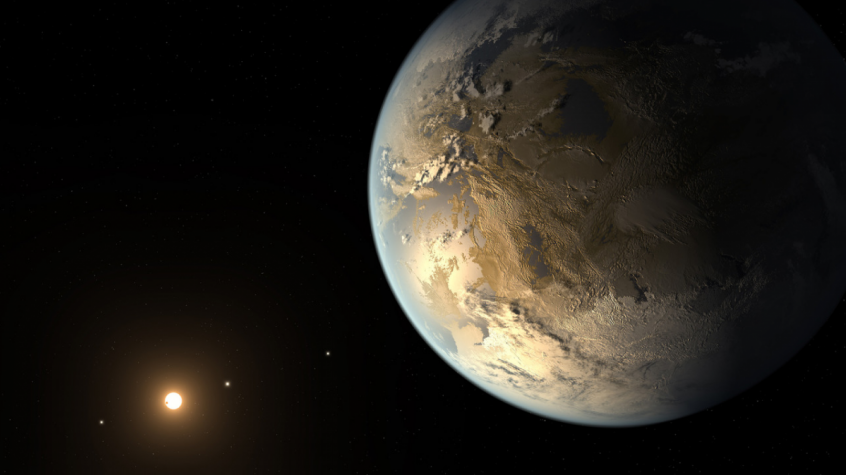The number of planets that have been detected orbiting other stars now exceeds 5,000. Many of these exoplanets, as they are known, look like good homes for extraterrestrial life. But there is one question to which no-one yet knows the answer. It has a huge bearing on whether we are alone in the cosmos. How does life start?
Interestingly, it's a question that theologians can address as well as biologists, because buried within it lies another question: what is life?

At the moment, two main theses for the origin of life dominate the discussion. One draws directly from what Charles Darwin famously called 'some warm little pond'. The idea is that life arose spontaneously in the chemical soups that are presumed to have littered the surface of the Earth four or more billion years ago.
A second theory focuses on the chemical compounds called RNA, which catalyze DNA, the proteins that form genes. RNA is crucial to the self-reproductive capabilities of DNA, one of the key markers of life as we know it. The assumption is, therefore, that RNA must have come first.
Both theories have keen advocates and also powerful critics. If there is a central objection to both it's whether the chemical reactions each requires are efficient enough. You can put the issue like this: is the Earth old enough for the random collisions between chemical compounds to have occurred before life first sparked? Further doubts emerge because it's unclear what conditions were like on the surface of the Earth all that time ago.
Prasanta Bandyopadhyay, a statistician at Montana State University, was speaking at a recent conference in Oxford organised by the Ian Ramsey Centre and the International Society for Science and Religion. Given the doubt that surrounds both theories, he asked whether either are testable? 'It could be years or decades until this is decided,' he said.
This is where theology might have a part to play. It can contribute to the discussion about the nature of life by helping to ask, what is it? Another speaker at the conference, Andreas Losch, a theologian at the University of Bern, has edited a collection of essays on this question, What is Life? On Earth and Beyond. The book has just been published by Cambridge University Press. In particular, he argues that theology can help keep biology from becoming too physicalist about life - that is, assuming life is no more than a very complicated biochemical machine.
For example, it's possible that life is not the product of random chemical collisions at all but that, embedded in the universe, is what the cosmologist Paul Davies calls a 'life principle'. His thought is to consider whether there is an innate tendency in the cosmos to produce life.
It's an old idea. The medieval theologian Thomas Aquinas wrote: 'It is clear that nature is a certain kind of divine art impressed upon things, by which these things are moved to a determinate end. It is as if a shipbuilder were able to give to timbers that by which they would move themselves to take the form of a ship.' Aquinas was arguing for a God who is not an intelligent designer who tinkers with nature to get the balance right. Instead, God would grant nature a degree of autonomy. It is these internal processes that science uncovers.
Many of the contributors to the conference argued that many old biological assumptions about life are reaching their sell-by date. For example, organisms are increasingly being studied as whole systems, rather than machines that can be taken apart. As Ottoline Leyser, a plant biologist at Oxford University, put it: 'Plants don't know that they have parts.'
The upshot is that scientists are increasingly searching for processes in life that work from the top down as much as the bottom up. That kind of complexity resonates with a theistic view of things, adds Losch, as God must also do both.
You could say that a theological view of life can help keep the imagination of biologists open, as they seek to ask what life is and how it arose. After all, if both questions are currently unanswered, and seem likely to remain undecided for the foreseeable future, it could be that an unexpected insight about the nature of life proves crucial.
In the meantime, as more and more exoplanets are found, and as speculation about the possibility of life elsewhere continues to grow, it's worth keeping these central issues in mind. Until we know what life is, and how it started, it is premature automatically to presume it must exist elsewhere.
Mark Vernon is a psychotherapist and author of 'The Idler Guide to Ancient Philosopy'. For more see www.markvernon.com













